|
Today, it's fundamental to examine various non-traditional teaching approaches and practises to learn how they might improve educational efficacy. Non-formal education is defined as "any organised educational activity outside the established formal system – whether operating separately or as an important feature of some broader activity – that is intended to serve identifiable learning clienteles and learning objectives” (Philip Coombs, 1973). The new edition of the course “Non-Formal Education Teaching Methods and Strategies” took place in Palermo from 13/11/2022 to 19/11/2022. The participants came from different European countries, with Oana and Cristian from the Romanian Angel Appeal Foundation, in Romania; Mirell and Kadi from Sõmeru Basic School, Estonia; Tanja from Myllykosken yhtenäiskoulu, in Finland; and Andromachi, Niki and Eirini from GEL Tympakioy, Greece 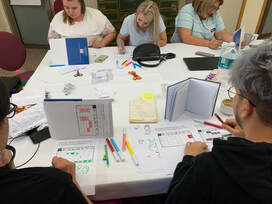 At first, we looked at what Non-formal education is and how it is different from formal and informal education, focusing on its characteristics. Of course, the participants tested firsthand a lot of practical non-formal activities. We did a lot of interesting speaking games, which are another kind of non-formal educational activities useful for enhancing cooperative learning and developping a dialectic approach. Then, we discovered together how role-playing games can be used to understand implications of a particular behaviour in a specific context and how it helps to analyse the contribution that each person can give in a particular role position. 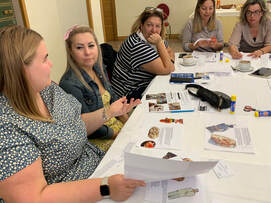 Moreover, we explored and used visual strategies. Using art and creative thinking in making collages or drawing something related to a specific topic, the participants tried to stimulate their expression with the use of metaphors. Thanks to different visual activities, we realised how visual arts can be an easy way to discuss some topics and convey difficult concepts. 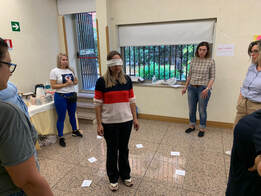 We also learned the importance of team building and team working in education: collaborating with other team members can be very productive and it gives each member the opportunity to enrich the whole group with their contribution. After having analysed together the different tools and the various strategies of non-formal education, each participant had the opportunity to create a new non-formal tool to use in his or her own environment. Moreover, all the group members had the chance to give feedback and suggestions to their colleagues’ activities. Thanks to the creativity and the effort of each participant, at the end of the course we collected new practical and creative tools ideated by the educators. In conclusion, during these days the participants had the opportunity to explore the world of non-formal education in a safe and stimulating environment, enhancing skills like teamwork, communication, and critical thinking. Discover more about this course in: https://www.erasmustrainingcourses.com/non-formal-education-teaching-methods.htm
|
Welcome to the ELA Blog. Here you will find articles and photos of our courses and have a look at the topics addressed during the week in Bologna, Palermo and Tenerife. You will also have the chance to take a peek at our projects and check out what we have been up to.
Archives
July 2024
Categories |
-
Course catalogue
- 2023-2024 course catalogue
- Soft Skills >
- ICT and New Technologies >
- Inclusion and Diversity >
-
Innovative Teaching Methods
>
- Innovative teaching methods discovery
- Non-formal education teaching methods
- Dual education and work-based learning
- Teaching leadership and entrepreneurship
- Project based learning
- Game based learning and gamification
- Green skills
- Outdoor education
- Outdoor education trekking edition
- Promoting creativity and critical thinking
- Languages and EU projects >
- Preschool >
- Erasmus Plus KA1
- What we do
- About us
- Locations
- Blog
- Contact us
 English
English български
български Čeština
Čeština Español
Español Français
Français ελληνικά
ελληνικά Italiano
Italiano Polski
Polski Português
Português Română
Română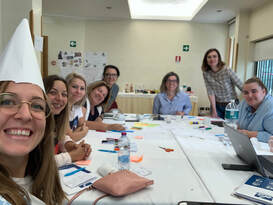
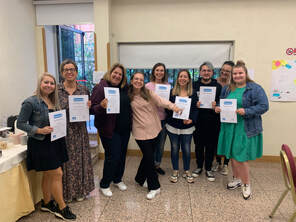
 RSS Feed
RSS Feed









